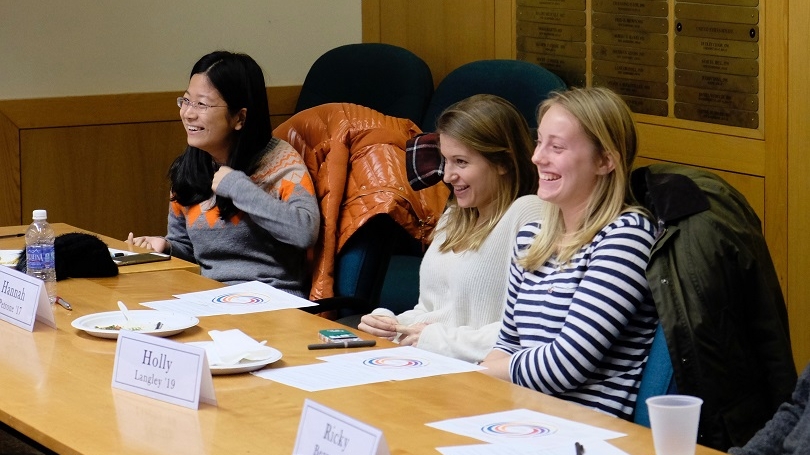
- Public Policy
- Leadership
- Funding
- News & Events
- About the Center
Back to Top Nav
Back to Top Nav
Back to Top Nav
Back to Top Nav
One of the greatest opportunities that my Dartmouth education has offered me thus far (and offers to all who are receptive) is an academic context through which to better understand and examine the role that privilege plays in my life. Prior to Dartmouth I was lucky enough to have a family that instilled in me a sense of gratitude, a feeling that is inextricably intertwined with an awareness of privilege. However this was a sort of pre-theoretical feeling of privilege that I truly needed guidance in examining further. Our session with Dr. Anya was just another example of Dartmouth’s efficacy in helping students to better understand what it means to have privilege, where it comes from, and at whose expense we are in possession of it.
In her explication of social “praxis”, Dr. Anya illustrated the methods by which we can effectively apply the theory that we have been exposed to. Recognizing the need for application is essential, for, while it is invaluable to continue to learn about what it means to have privilege and live with privilege, it is not enough to stop there.
Still, what was most illuminating about Dr. Anya’s session was the discussion that ensued around the concept of privilege and “unearned” privilege. What the discussion revealed, first and foremost, was that even at an institution of higher learning such as Dartmouth, there is a degree of denial regarding even the existence of unearned privilege, let alone the level of it that we enjoy as Dartmouth students. I found this to be profoundly upsetting, especially in today’s world in which we are privy to the atrocities occurring elsewhere in the world every time we turn on our phones, open up our laptops, or watch TV. This denial is additionally problematic due to the fact that the only way to work towards leveling the paying field for all individuals is for those who possess privilege to recognize that privilege, and more importantly, to recognize the institutions and structural dynamics that serve as the source of that privilege.
Ironically, one’s ability to feel comfortable denying the existence of privilege is almost always a sure sign that he or she possesses it.
Submitted by Hannah Petrone ’17, RGLP Participant
The views and opinions expressed here are the author’s own and do not necessarily represent the views and opinions of the Rockefeller Center or constitute an endorsement by the Center.